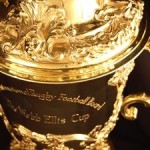 When England and France line up against each other in Saturday’s quarter-final Martin Johnson’s men will take confidence from a record of three victories in four Rugby World Cup matches against their cross-Channel rivals.
When England and France line up against each other in Saturday’s quarter-final Martin Johnson’s men will take confidence from a record of three victories in four Rugby World Cup matches against their cross-Channel rivals.
The sides first met in the last eight of RWC 1991 at Parc de Princes in Paris when England won 19-10. In 2003 they ended French hopes with a 24-7 semi-final win in Sydney’s Telstra Stadium, and four years later the English again booked their place in the final with a 14-9 win at Stade de France.
France’s only triumph came in the 1995 bronze medal match. Veteran Franck Mesnel pulled the strings from fly half to guide Les Bleus to a 19-9 win in South Africa that ended a run of eight defeats at the hands of their old enemies.
Based on the evidence of their two most recent RWC meetings, goal-kicking is highly likely to play a central part in deciding the outcome on Saturday.
In 2003 Jonny Wilkinson kicked all England’s points with five penalties and three drop goals while in 2007 he added two penalties and a drop goal after Josh Lewsey had crashed over for a first-minute try.
Successful kicking has also been a decisive factor in the two most recent meetings between the two sides in the Six Nations.
France clinched a Grand Slam in 2010 with a 12-10 win in Paris. On that occasion fly half Francois Trinh-Duc calmed French nerves with an early drop goal while scrum half Morgan Parra – who will play at fly half on Saturday – added three penalties to seal victory. England replied with a Ben Foden try, a Toby Flood conversion and a Wilkinson penalty.
Success ratio
This year Foden again crossed the line for a try but it was Flood’s three penalties that tipped the balance as England ran out 17-9 winners while all France’s points came from the boot of Dimitri Yachvili.
England may hold the upper hand historically but on current form France’s kicking statistics make for more impressive reading.
Parra has landed nine of his 10 kicks so far in the tournament while Yachvili has a kicking ratio of 81 per cent and has landed all seven penalties that he has lined up.
In contrast, France’s chief tormentor from 2003 and 2007 is struggling to find the target. Wilkinson has a success ratio of just 45 per cent and has missed nine of his 14 penalty attempts. Flood has fared better with a penalty and nine conversions to his name.
Furthermore, it is Marc Lièvremont’s side that have the higher number of recognised kickers. Parra and Yachvili have both taken on the role regularly for France and are first-choice kickers for their club sides, Clermont Auvergne and Biarritz.
Trinh-Duc has kicked on occasions for both France and Montpellier, while full back Maxime Médard and reserve Cédric Heymans are experienced performers with the boot in France’s Top 14.
England’s only authentic marksmen are Flood and Wilkinson, and with wing Delon Armitage suspended on Saturday they lack a third option should that pair fail to find their shooting boots.
Natural balance
Yachvili, who will be lining up Les Bleus’ kicks at Auckland’s Eden Park, is a man who truly revels in putting the boot into les rosbifs.
His finest le crunch moment came in 2004. Fired up by their defeat in the previous year’s RWC, France earned a modicum of revenge in the Six Nations with a 24-21 victory in which Yachvili racked up a personal haul of 19 points through a try, four penalties and a conversion.
Twelve months later the scrum half was at it again, nervelessly banging over six penalties to earn France their first win at Twickenham since 1997.
One factor that may tip the match in England’s favour is the two-footedness they possess when kicking from hand.
So far in the tournament Johnson’s preferred half-back partnership has been the right-footed Ben Youngs at scrum half with Wilkinson, who favours his left, at fly half. He can also mix it up by throwing on the left-sided Richard Wigglesworth at No.9 and right-pegger Flood at No.10 from the bench.
Yachvili and Parra are both lefties, likewise France’s kicking centre, Aurélien Rougerie.
While the natural balance England possess in this respect may appear unimportant at first glance, it makes it easier for them to kick clear of danger from close to the line on both sides of the field.
Over 80 minutes that can allow a team to build up pressure on opponents in their own half.
With such pressure come tries and penalties. Then the kickers take over. And based on current form it will be the team in blue, rather than white, that will be more confident of seeing the ball sail between the posts.